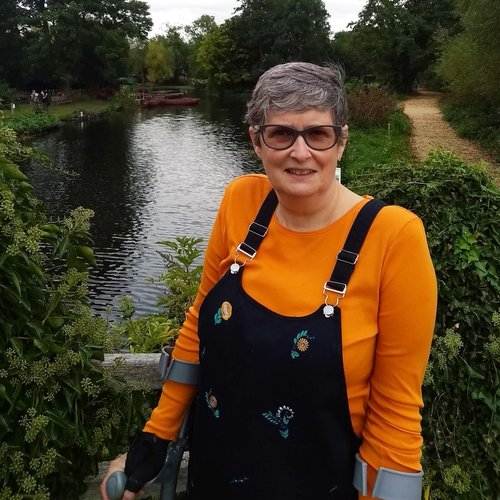Disability through chronic illness
 The Revd Pam Webster is a Methodist Minister who is currently unable to work in active ministry due to chronic illness. In this blog she shares a little of what life can be like for those who live with long-term, debilitating conditions.
The Revd Pam Webster is a Methodist Minister who is currently unable to work in active ministry due to chronic illness. In this blog she shares a little of what life can be like for those who live with long-term, debilitating conditions.
I’m trying to tease out some of my discomfort and frustration in the crossover, or intersectionality if you prefer, between Disability and Chronic illness. I've been trying to put it into words for some time, and by definition of my illness, struggling. I'm not sure this still encapsulates what I want to say, but this is my thinking aloud; I hope it makes some sense and helps someone else.
Chronic Illness is disabling, but in some distinct ways very different to some other disabilities.
This does not apply to all chronic illnesses, but if your chronic illness is bad enough to classify as disabled, it probably does. I am talking personally about my illness, because that is all I can do.
Many people with disabilities say that it is society that disables them. I get that entirely. But with a chronic illness it is definitely the illness that disables me. Most of the time I feel ill. All the adjustments in the world do not help if I am just not well enough to go out – though they do help when I am well enough to, and for places I have to go like hospitals.
My illness causes physical disabilities like mobility and vision problems, so those are real life issues for me, but much more are not being able to get out of the house because of my health not my disabilities, when I am just not well enough. Things like ramps, comfortable seating, and correct lighting do matter – but only if I can get to somewhere.
The time and energy taken to travel to somewhere also has to be factored in when you are not feeling great anyway.
Chronic illness, as well as the debilitating symptoms in itself, takes up so much time and energy with constant rounds of medical appointments, chasing those appointments and medicine, doing any rehab, it leaves little time or energy for anything else. They also preclude being at things you might want to be.
My illness, rather than my disability means I sleep every afternoon. So many things happen in the afternoon that I couldn’t even join if they are online.
For physical church, it is impossible to be regularly, if ever, there. It doesn’t matter what adaptations or accommodations are made; I am not well enough to join in, to get there, sit comfortably, battle with the surroundings and get home again. Sadly, it also doesn’t matter what exciting opportunities are created or enabled for disabled, I still can’t join in them.
It can often feel like “out of sight, out of mind”. When people are not part of the visible worshipping community it is easy to forget them (or that is how it feels) – with no disrespect to anyone. We do not seem to fit into the same category as the elderly housebound. Also, when being ill is your “normal” and people are used to you not being around, it is not always easy for the community to notice an additional crisis, when I am more ill than normal or something different, and cannot be expected to realise that you could do with some support.
Online opportunities are not just a helpful option, but usually the only way I will be able to join in – as long as I can read what’s on the screen, am not too tired, or it doesn’t clash with a medical appointment!